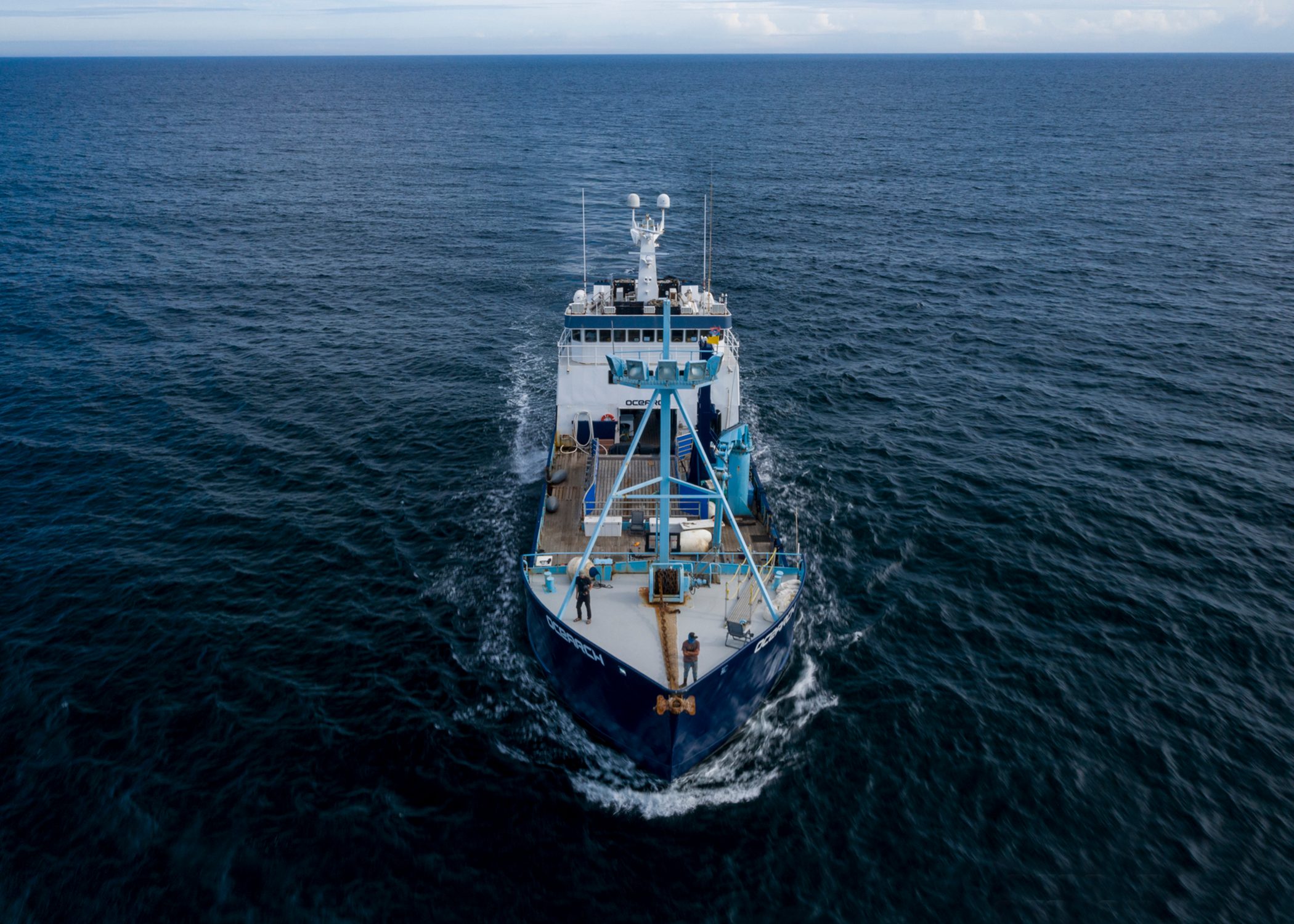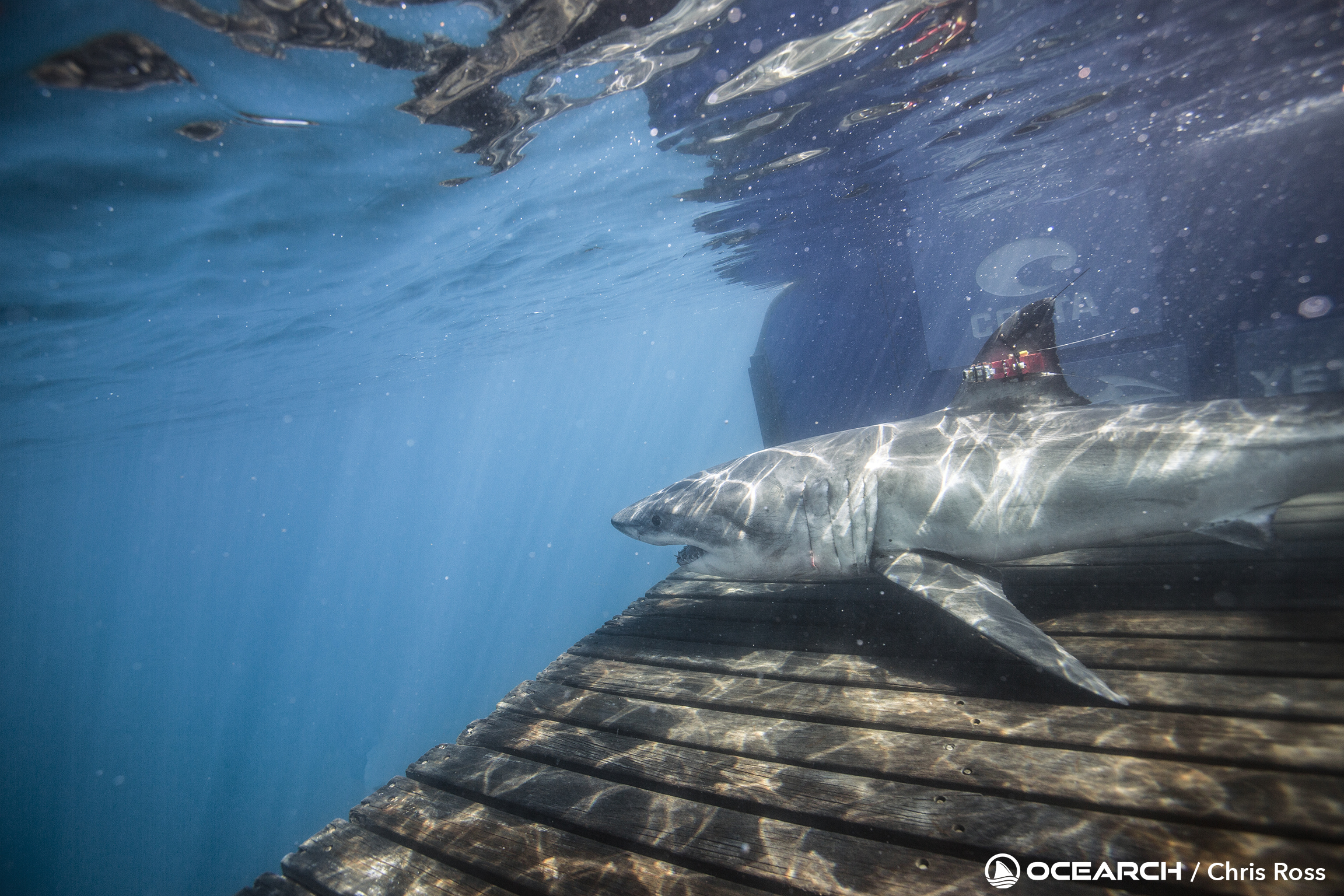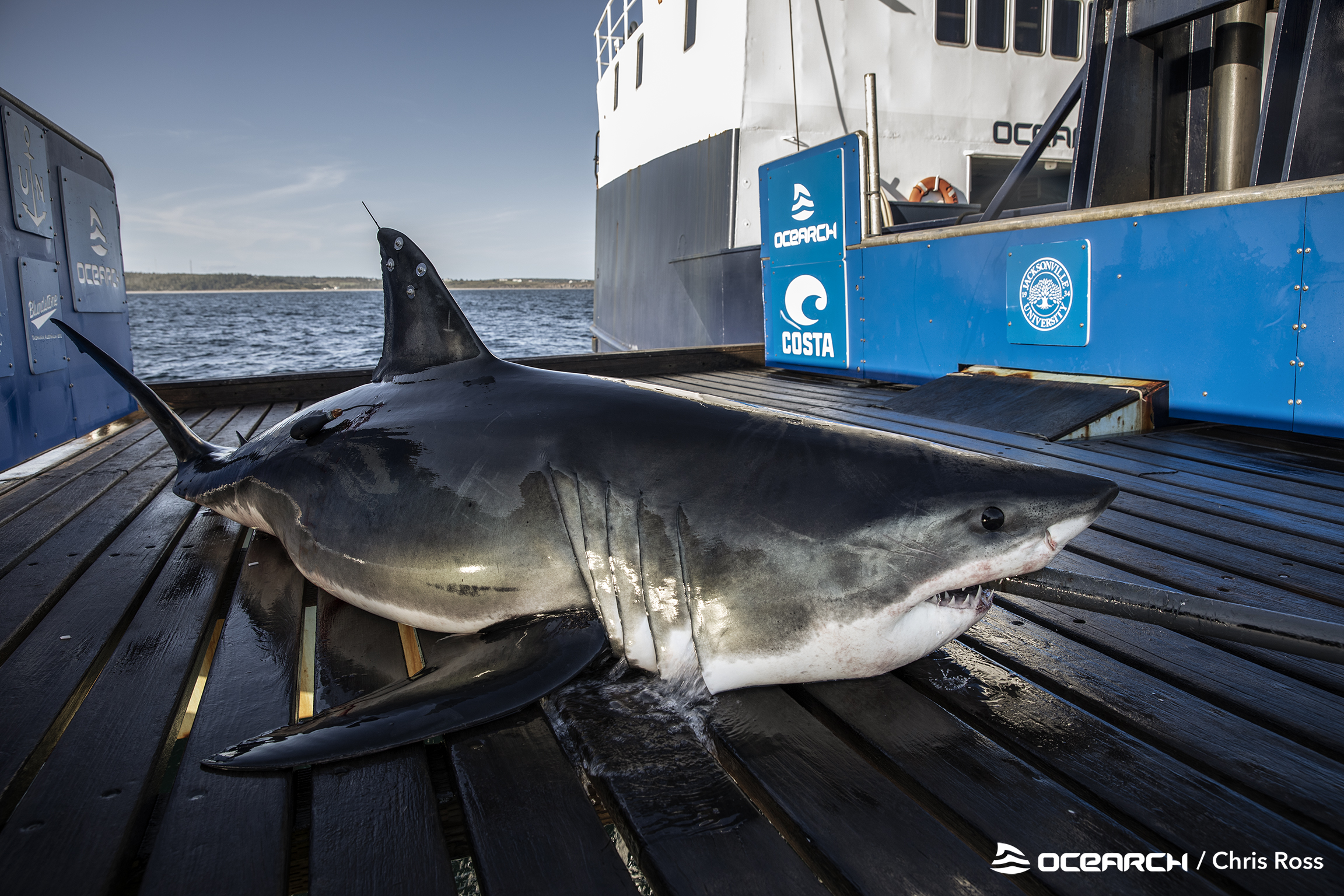OCEARCH – March Spotlight
Our Project Ocean March spotlight lands on OCEARCH, a global nonprofit piecing together the life puzzle of our ocean’s biggest residents. OCEARCH focuses most of its attention on the white shark, as it believes they are critical to ocean health and flourishing.
During their various sea expeditions, they catch, tag and release sharks to learn more about each stage of their lives. In the 15-minute window they have with each shark, team members and scientists take various samples and outfit them with a tracker. Learn more about OCEARCH’s “why” below!
Part of your mission statement is to “accelerate the ocean’s return to balance”. What does a balanced ocean look like to you?
A balanced ocean is an ocean where all the levels of the food web, from primary producers at the bottom to apex predators at the top, are in their proper levels of abundance for ecological equilibrium. This is when the ocean is at its healthiest and most productive.
How many sharks are you hoping to tag, and why is that number significant?
Our current goal is to tag 100 sharks in the Western North Atlantic which will create a robust dataset for our science team to help answer the 100 questions associated with our 24-project science brief. These questions will help us solve the life history puzzle of the Western North Atlantic white shark, creating a full picture of their lives including movement patterns and changes, prey preferences, reproductive cycles and more.
We have currently sampled, tagged and released 88 white sharks in the Western North Atlantic.
Why is it important to know where sharks are and where they’re going?
This reveals to us the entire life cycle of the species from young to old and identifies their critical habitats for feeding and reproduction. It also allows us to inform the public and policymakers about the presence of sharks and how people should adapt to that.
What do you see as the biggest challenge sharks currently face?
Their biggest challenge remains having too many of them removed from the oceans due to overfishing. In progressive countries where shark fisheries are under good management, like the U.S., this has become less of an issue. But on the high seas and in many other countries around the world, the overfishing problem continues.
Why have the education and outreach parts of your work been a priority, in addition to the research?
Sharks have a bad reputation due to their depiction in tv and movies, as well as the intense, often exaggerated coverage of shark bite stories on the news, despite their rarity. The public has a fear of sharks due to their false representation in the media and this is why education and outreach efforts are extremely important. OCEARCH is focused on sharing the facts about these amazing animals over the fear.
What are some of your future goals and/or areas you hope to work in next?
There are nine populations of white sharks around the world, and we are looking to solve the global white shark puzzle by understanding each of these nine populations. We are hoping to finish up the research efforts of the Western North Atlantic Puzzle soon and use what we have learned here as a model for our next region: the Mediterranean.
The Click & Pledge Foundation team will film with OCEARCH on an upcoming expedition in April 2023 for the Project Ocean documentary. We can’t wait to share more with you!









